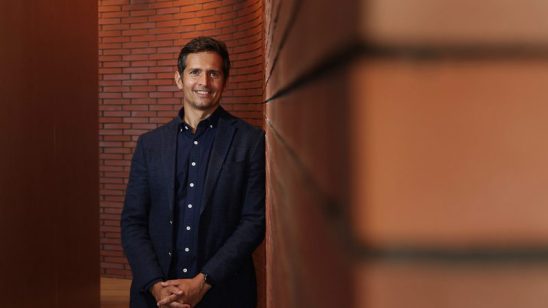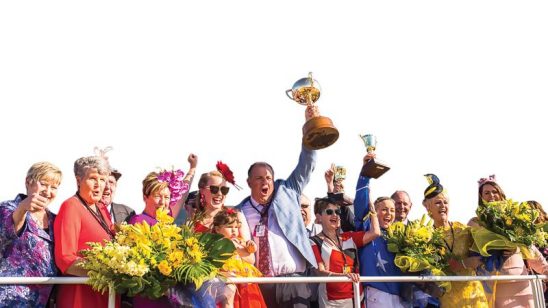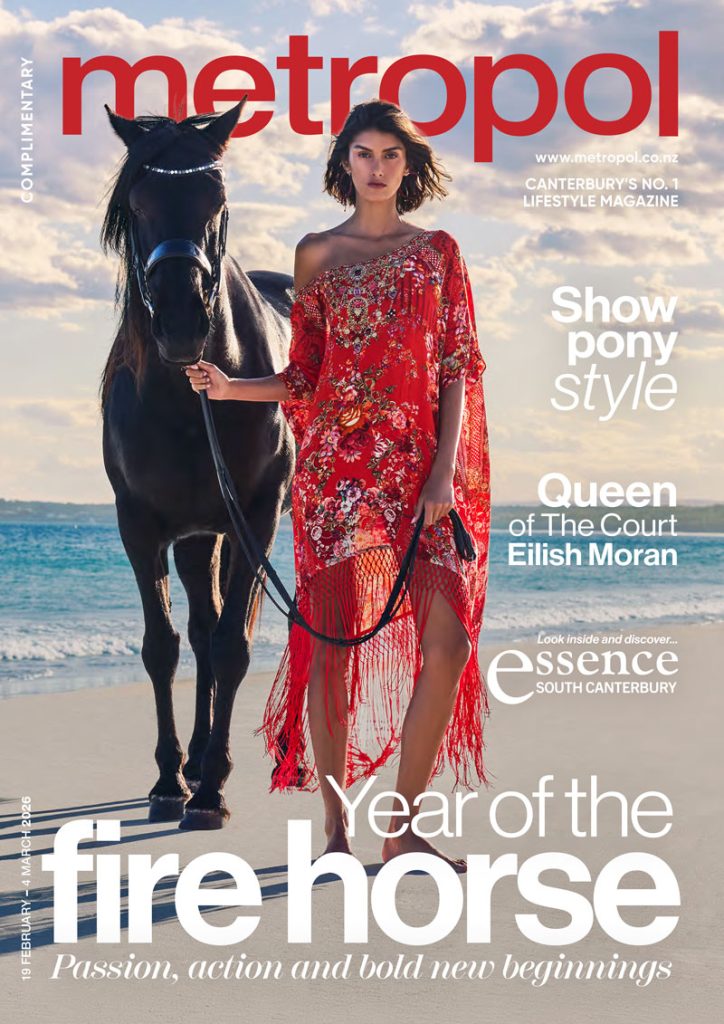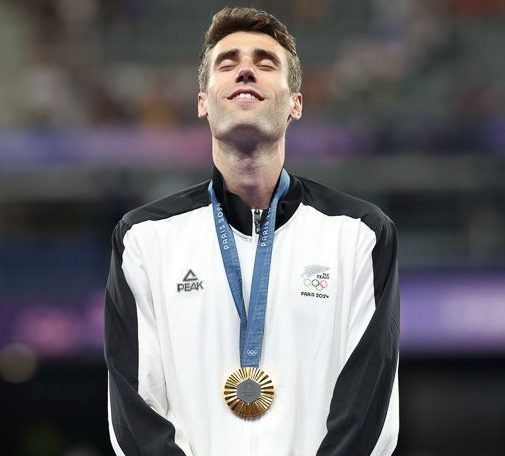
This Kiwi can fly: Hamish Kerr
It’s the night before the Paris Olympics men’s high jump final. Christchurch-based Hamish Kerr is about to become an Olympic champion, bringing home New Zealand’s first ever Olympic medal in the event. Metropol Deputy Editor Nina Tucker discovers how he did it.
Hamish watched Maddi Wesche win silver in shot put, before clocking up nine hours of sleep atop one of the infamous Olympic cardboard beds. That’s not the kind of evening routine you might expect from someone just hours away from facing the climax of their career.
As I watched the final from the edge of my couch in the early morning hours along with thousands of other Kiwis, we were treated to a nail-biter. Ahead of the qualifying round, Hamish knew he was the top-ranked athlete. A goal to medal, and with winning a possibility, he inched closer to those realities after qualifying first. Comfortably, it was on to the next.
“Before qualifying, I was very nervous and didn’t sleep much, but once I completed that, the pressure was off a bit,” Hamish recalls. With composure and a jump of 2.36m in the final, he outperformed reigning champions Gianmarco Tamberi and Mutaz Barshim, who famously shared gold in Tokyo 2021. It boiled down to a dramatic jump-off between Hamish and Shelby McEwen before the Kiwi flew to history with a winning jump of 2.34m.
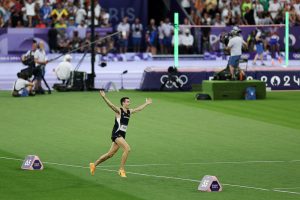
I remember running around the living room, while Hamish ran laps around the Stade de France. He says the win hasn’t sunk in yet, and he doesn’t expect it to for a while. “The moments which are the sweetest are the ones where I really had to fight to get a result or are the product of some hard work,” Hamish says. This was one of them.
He shares the gold with the network of support around him. “They do so much hard work in making me the best high jumper I can be, and they give me confidence that my goals are possible. Sometimes when you’re trying to achieve your dreams it can feel quite isolating so to have a team of people who also believe in that dream around you, it makes all the difference.”
Being surrounded by New Zealand fans in the stadium was a “game-changer,” he explains. “It makes me feel like I’m at home no matter how far away it is.” Hamish had to keep a cool mental state throughout the competition and buzzing crowds to become an Olympic champion. “Physical preparation takes months, however a loss in concentration can detract from that instantly.”
In his sport, it’s about saving the best till last, “so to be able to hold it together for a couple of hours as the tension builds is mostly mental.” When he cleared the bar, Hamish didn’t just make Olympic history, he received a hefty and hard-earned paycheck—over $80,000. The satisfaction of achieving a childhood dream surpasses the money, yet funding his girlfriend and coaches to travel with him makes an incredibly lonely job a lot less so.
Paris 2024 was “such a whirlwind of emotions,” he explains, so much so he never got the chance to taste one of the chocolate muffins that went viral online. A short stint exploring Europe followed the victory, before returning to home base with no regrets. “We [athletes] usually feel like there could always be more to achieve,” he says. “Since I’ve gotten home, I feel like every day is just amazing.”
Preparation is key. “We do all the hard work months before, then go out and enjoy the feeling of competing,” Hamish explains, on his training regime. That looks like two gym, jump, and track sessions each per week, with recovery sessions such as yoga, stretching, and ice baths as well. These sessions are bigger in the off-season, “You need to be fresh to compete well.” 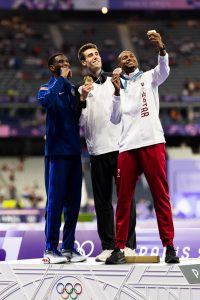
That dedication didn’t shift in the lead-up to the Games. While fans and media kept a watchful eye on Hamish’s transition from longtime coach Terry Lomax to James Sandilands just eight months out, Hamish and his team, Terry in the background, had just one goal—becoming a winner. “This year was all about challenging myself to be as professional as possible, nailing my nutrition, planning, and recovery.” A disappointing result of 2.22m at last year’s World Championships landed him 19th and without a spot in the final despite a season’s best of 2.31m. It forced him to adjust. “In hindsight, this extreme low made me brutally honest with how I operate, and ultimately led to change which allowed the massive successes of this year,” Hamish explains.
Ready for the ultimate world stage, it was all the result of fearlessness. A lover of sport his whole life for the time spent outdoors and with friends, Hamish’s heroes were Olympic athletes. Now one of them, he says “Anything is possible if you work hard and commit to turning up every day, and I hope that any kids out there realise that I’m super approachable if they want advice.”
Hamish pursued athletics, running and jumping specifically, after a school athletics day. He signed up for a club and developed a great friend group, which “became my motivation for turning up.” He was a hurdler, but he knew that high jump posed his biggest potential. It became his sole event at 18 years old, but university caused him to step back for a year and a half. “I missed it so much so I came back.” He completed a bachelor of AgriCommerce in 2017 and decided to try for the Olympics. “The rest is history,” he tells me.
Signing off for the season, Hamish shares that while competition opportunities are still popping up, it means more to him to reflect on the “craziness over the last few months.”
SEASON IN SPOTLIGHT
GOLD Paris Olympics 2024, 2.36m
GOLD World Indoors 2024, 2.36m
GOLD Monaco Diamond League, 2.33m
POST-GOLD MEDAL MOMENTS
• You have just won the gold medal, what is on the celebratory menu? Champagne and chicken burgers.
• Who are you most excited to tell? Mum and Dad.
• It’s the day after the Olympics, where are you sightseeing? The Eiffel Tower of course.


